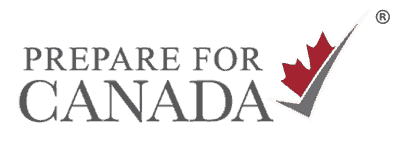BANKING & FINANCE
Inflation in Canada and what it means for newcomers
by | Oct 10, 2024

For newcomers and international students arriving in Canada, the current rate of inflation affects how much you pay for housing, groceries, transportation, and other expenses. Staying informed about inflation changes can help you budget and manage your finances. Stay up-to-date with recent changes so you can manage the cost of living in Canada.
The most recent Statistics Canada data (June 2024) shows the annual inflation rate fell from 2.9 percent in May to 2.7 percent in June. This rate drop is welcome news for immigrants who have recently arrived or will soon arrive.
Lower gasoline prices were the driving force behind the rate drop.

What is contributing to the current rate of inflation?
Durable goods (cars, home appliances, consumer electronics, furniture, sports gear, toys, etc.) fell by 1.8 percent, which also helped lower the rate.
More good news for newcomers is that cell phone services were down 12.8 percent in June compared with 19.4 percent in May. Canada has some of the highest mobile phone rates in the world.
Clothing and footwear prices also edged lower in June. Service prices rose 4.8 percent annually in June, compared with a 4.6 increase in May.
Some costs and services that led to the June inflation drop:
|
COST OR SERVICE
|
CHANGE
|
|---|---|
|
Durable Goods (furniture, appliances)
|
Down 1.8% year over year
|
|
Used vehicles
|
Down -4.5% amid improved inventory levels compared with a year ago
|
|
Travel tours
|
Down 11.1 compared to a year ago
|
|
Recreation/Leisure
|
Down 0.5% in June after a 0.4% gain in May
|
|
Cell phone services
|
Down 12.8% in June compared to May 2024
|
|
Gas prices
|
Rose just 0.4% in June compared to 5.6% in May
|
|
Price for fresh fruit
|
Down -5.2% in June compared with May (-2.8%)
|
Newcomers can monitor inflation in Canada to help budget for costs.
Housing inflation is a concern for immigrants

“Shelter inflation,” or the costs involved in homebuying and renting, was still more than double the primary rate of inflation in June. Shelter prices in Canada increased by 6.2 percent over the last year and continue to be the primary cause of higher inflation.
While rent growth has slowed in recent months in Canada’s largest cities, Toronto and Vancouver, some popular rental markets, such as Alberta, continue to have rental price growth. Rent prices in Canada rose 9 percent in June compared to June 2023.
So, will the drop be enough to convince the Bank of Canada (BOC) to cut its key overnight lending rate gain?
Will an interest rate cut follow the inflation report?
The BOC lowered interest rates from 5 percent to 4.75 percent in June 2024. That cut was the first in four years, and the first time the rate fell below five percent since July 2023.
The Bank will meet on July 24 to discuss whether current economic conditions warrant further cuts.
Derek Holt, Vice President and Head of Capital Markets Economics for Scotiabank believes that “the BOC is still likely to cut” in July, which would be good news for immigrants.
Canada's inflation rate target remains 2%
The BOC has set a target of two percent inflation. Inflation hit a high of 8.1 percent in June 2022, just as the Canadian economy was recovering from the pandemic. The BOC hiked interest rates 10 times between March 2022 and the summer of 2023 to control inflation.
The BOC believes that making it more expensive for Canadians to borrow money forces consumers and businesses to spend less, thus lowering prices and slowing the economy.
The most recent employment report for June revealed that the Canadian economy lost 1,400 jobs. The unemployment rate increased to 6.4 percent, meaning 1.4 million people were unemployed in June, an increase of 42,000 from May.
According to the latest report from the IRCC, monthly immigration to Canada rose by 22 percent in April. It increased again by 9.3 percent in May, with 46,550 newcomers that month,
That puts the total number of new permanent residents arriving in the first five months of 2024 at 210,865.
The details of the report are consistent with the backdrop of consumers becoming increasingly cautious with discretionary spending.
Benjamin Reitzes, BMO economist
Inflation is a major concern for immigrants and international students who have arrived in Canada or are arriving soon. The cost of living in Canada affects many basic items and services essential to newcomers’ daily lives.
A June 2024 Abacus Data poll showed that the cost of living is the number one issue for Canadians.
Arrive in Canada Financially Prepared
Building a strong financial foundation is vital to your success. Join this webinar to start your banking journey in Canada on the right foot!

Inflation in Canada summary

- Inflation affects immigrants and international students who buy essential items such as food, cell phone services, and rent housing.
- Inflation in Canada fell from 2.9 percent in May to 2.7 percent in June.
- Lower prices for gas and durable goods fuelled the drop in inflation while rent and mortgage interest costs continue to drive inflation in Canada.
- The June decrease in inflation may lead the BOC cut interest rates further.
- Inflation is the number one concern of Canadians.
Action plan for newcomers
- Continue to monitor the current inflation rate in Canada and the affects on rent prices.
- Be a smart shopper and research the best prices at Canadian companies and stores.
- Consider major purchases carefully.
- Follow the Bank of Canada interest rate cut decision on July 24.
SOURCES:
Scotiabank Economic Publications, Statistics Canada, IRCC
Steve Tustin is the Editor for Rentals for Newcomers and a contributing editor for Prepare for Canada. He is also the former managing editor of Storeys.com and a former senior editor at the Globe and Mail and the Toronto Star.
© Prepare for 2024
Related articles
Read more about your financial first steps in Canada.





